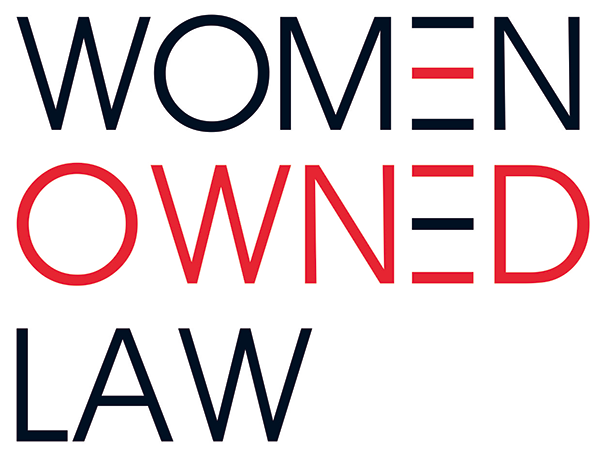Build Your Practice as an Asset and Plan Your Exit Strategy
As a follow-up to the Does Your Law Firm Have a Succession Plan panel at the Symposium, Sharon Christie, founder of Sharon Christie Law, spoke with Janet Falk. Christie explored how she decided to close her disability practice and the steps she took leading to a merger with another firm. This is an edited transcript of that discussion.
I had my own solo firm for 16 years. At first, I was really in need of some help on the business side, which is why I joined a mastermind. The people there talked about building your law firm as an asset. At that point, I just wanted to build a steady stream of clients. But I listened to what they were saying and it really put me on the path to understand, from the beginning, I'm working on building my awareness and client base, but I needed to also build an asset.
Someday, when I wanted to stop working as a lawyer, I would have something to offer, for sale or for a merger. Too often solo lawyers don't plan for the end. You get close to that point and say, "I need to stop working." You stop taking new cases. You finish up what you have, and you close your doors. You may be unaware that you have left money on the table, because you've spent your working life building your reputation.
I was very cognizant of building the practice as an asset and a marketing machine so that ultimately I would be able to say to someone: here's my books. This is what I bring in every year. This is how my marketing process works. As long as you continue this marketing, it will generate great clients and money every year.
As the years went on, I loved what I did. I had a brick and mortar law firm and a lease. My last one was a five-year lease, and when I signed it, I knew that at the end of that term, I was very unlikely to renew and be tied down to another lease. That was my plan in 2016. I had a five-year window until November 2021 and then I will do something different.
I looked around at who are the other lawyers that do disability law. Who would I consider approaching about either a merger or bringing them on? It had to be someone who I felt confident would take over and handle cases in the way that I did and also whom I could trust.
There was a person who I knew very well; she could check all my boxes and she was my number one choice. About 18 months before the end of my lease, we met and she was absolutely interested in my practice. We worked it out through our respective lawyers and it all was compliant with the ethical rules in our state. Another part of our agreement covered the marketing machine that I built and is still up and running and how I am compensated for that.
If you're merging, you really want to make sure you're working with a business lawyer who is well versed in the ethics and the requirements in your state, so that you don't get caught up in some type of attorney grievance issue.
I merged my practice and became Of Counsel to this law firm. I am not actively practicing law. I provide consultation when they need it, which was a lot in the beginning, not so much as we've moved on. We have a five-year agreement and at the end of that period, I'm done entirely.
I wrote an announcement and a letter to all of my clients and talked to most of them. It was their choice whether they stay with the new firm or not. Some had questions, which I answered. 98% of my clients moved on with the merged firm, which was a great outcome.
18 months was more than enough time for us, given the nature of a disability practice. We could have done it in a shorter period of time if we had to. In addition to the business attorney, I had an accountant, plus I spoke to the marketing company that I worked with to transition things with my website.
All the vendors, namely, the photocopy machine, the internet, the phone system, the computers and the computer system and the software, had contracts that were set to expire during the last few months. Before I moved out, I called the vendors, explained the situation and negotiated a few more months. They were more than happy to extend the contracts. I had my phone numbers forwarded to the firm that I merged with.
I worked out an agreement with the company that maintained all the computers and the onsite server to keep it going as long as I'm Of Counsel with this other law firm, so that I still can access the practice software and the old files, just in case former clients contact me. In truth, two years into the merger, I rarely get those calls.
I've maintained the bank accounts from my old law firm so that fees for work that I am partially responsible for go there. I'm not an employee of the new law firm; I'm Of Counsel. My old law firm still exists until the end of the five-year agreement. Then, I'll talk to my accountant to make sure everything is in order and close the bank accounts.
Back from my work as a personal injury attorney, I still have an IOLTA account at the bank; I will have to close that down; I will call the state bar and make sure that’s properly done.
As for my staff, I had four employees: two paralegals and two legal assistants. I told them what was happening and gave them plenty of notice regarding when their last day would be and that I was happy to give references, et cetera.
One paralegal and one legal assistant found new jobs. The other paralegal went to work at the merged firm. One legal assistant was invited to work at the merged firm, but she retired. In all, it can be a difficult conversation with employees, but it worked out well. I don't know that everybody was shocked by it. They must have thought “She's not going to keep working and will close the law firm some day.”
One thing I learned in the disability practice is that business can be hard. Practicing law can be very hard and I always kept a gratitude box. I kept copies of thank you notes and emails the client sent. I would go back and look at them when I was having a particularly hard day and people would consistently say, “Thank you so much for all the work you did on my case.” They would say, “You've really helped change my life. I was so worried. You know, you made it all better.”
That's how I think clients will remember me and my whole firm -- that we did change their lives for the better.
Remember, build your law firm as an asset. You've worked too hard building up what you have to just let it go for nothing. There's value there.

